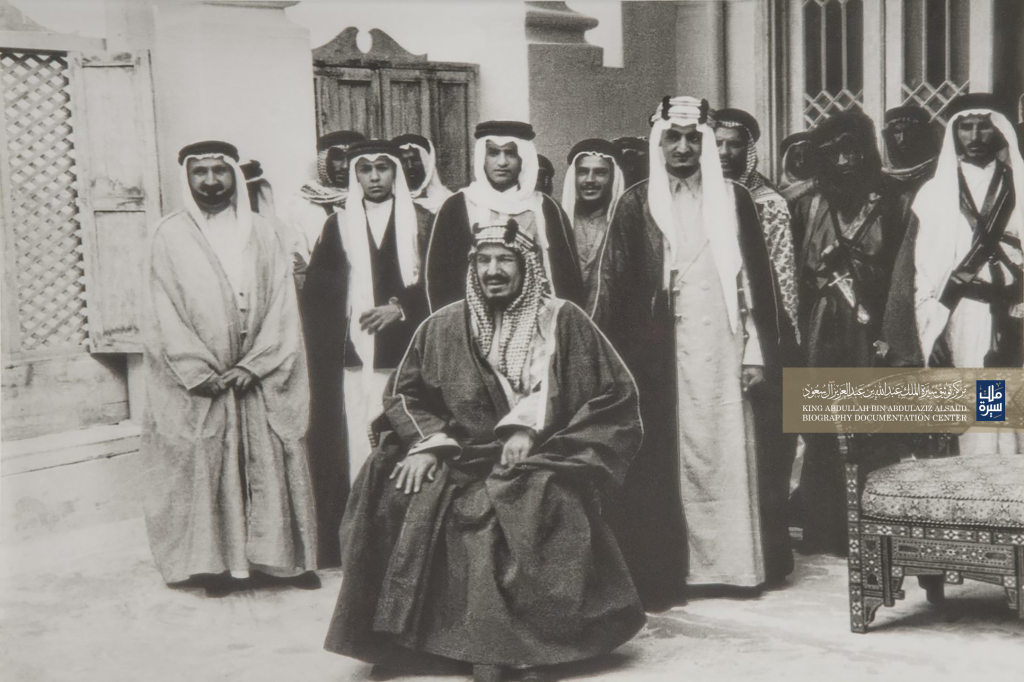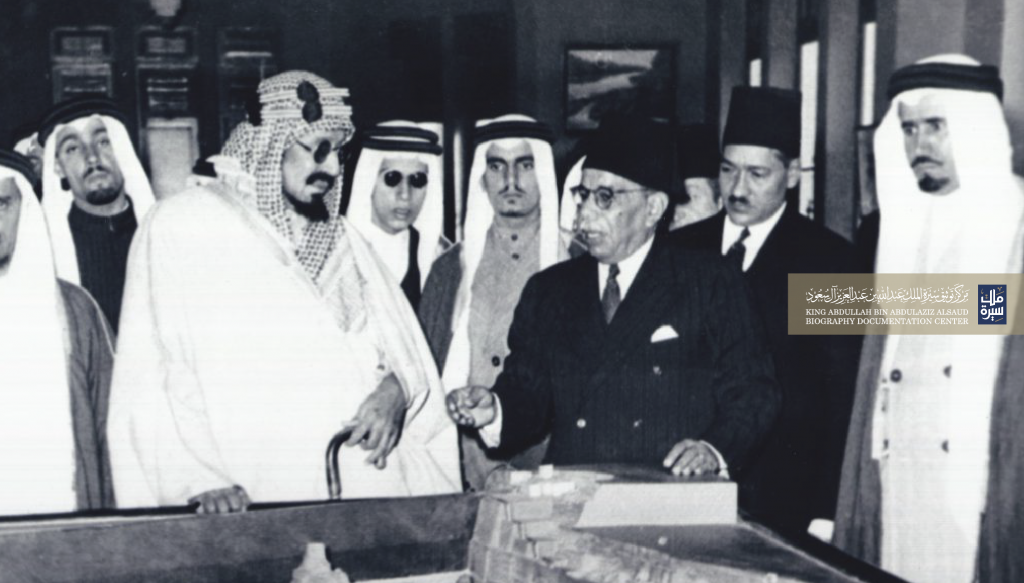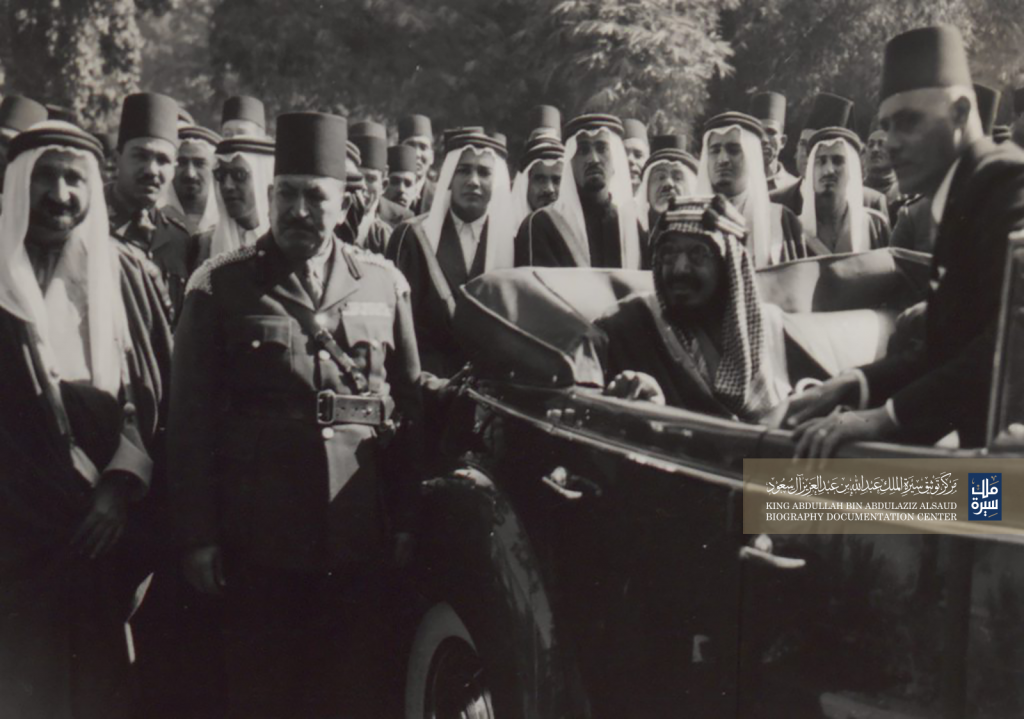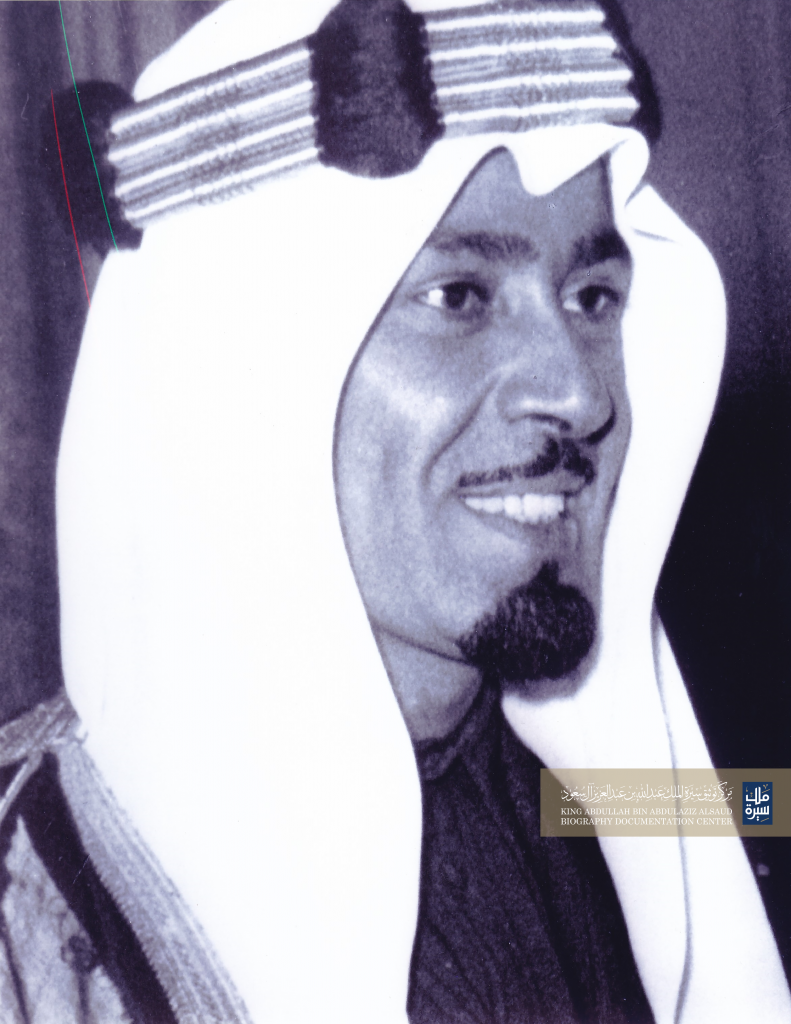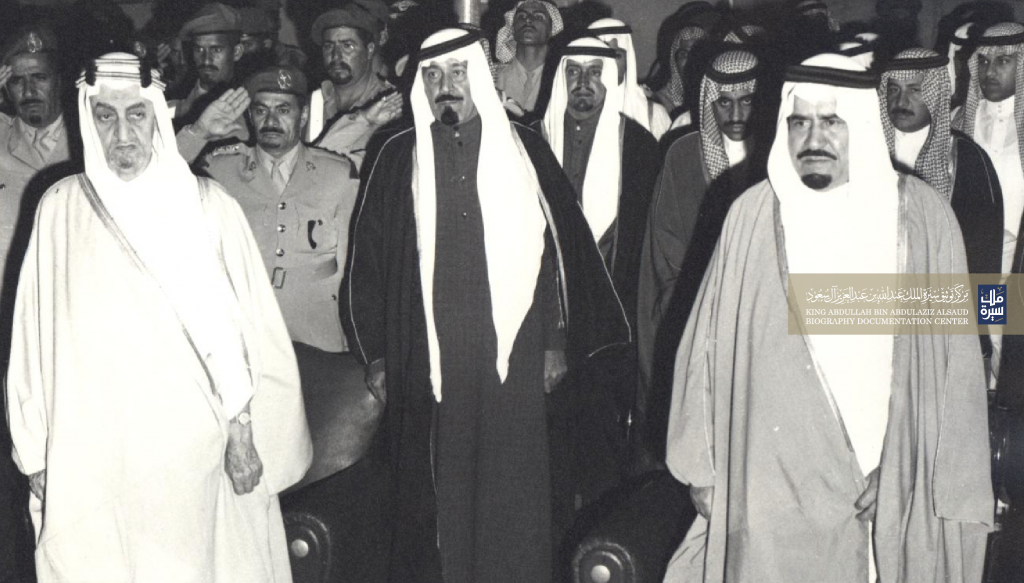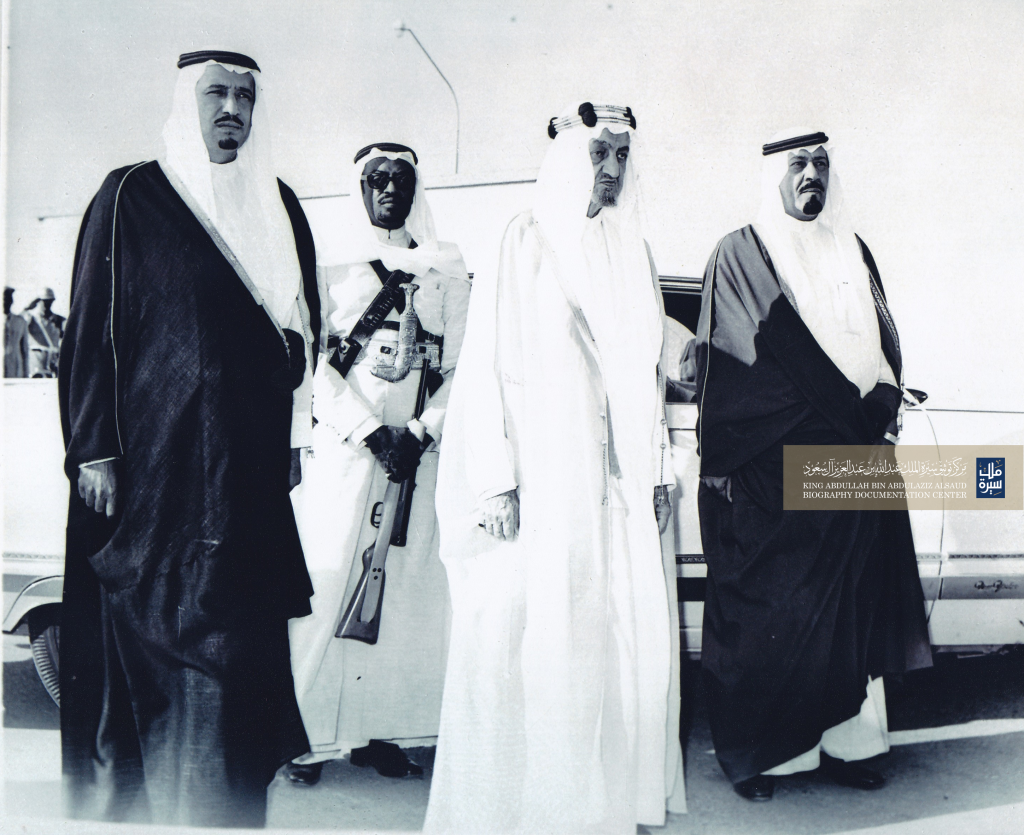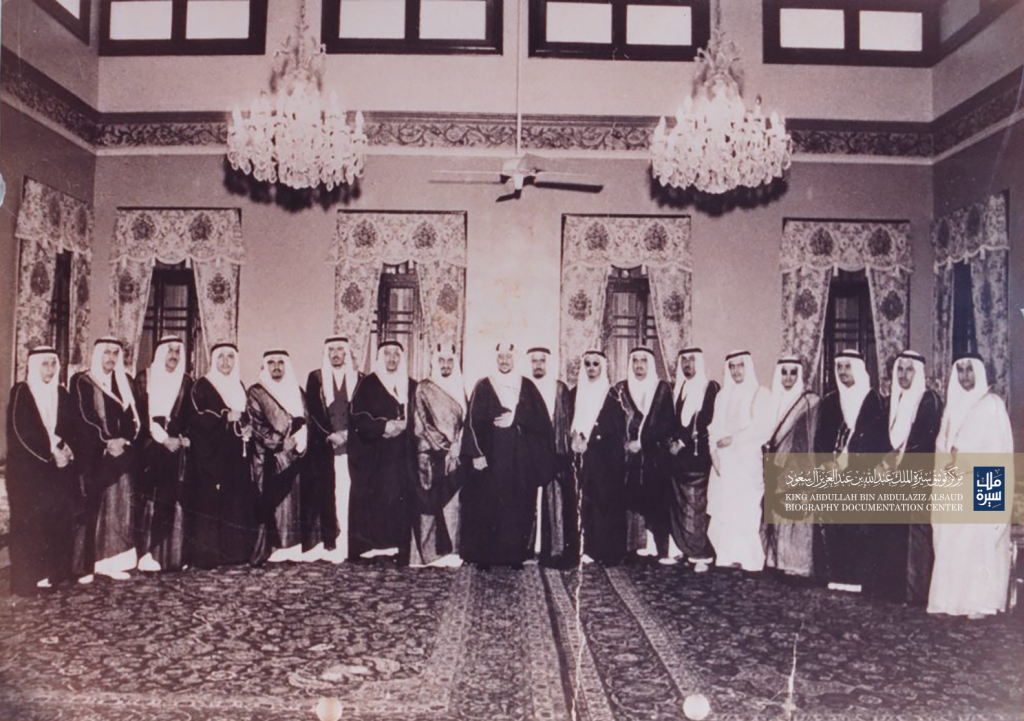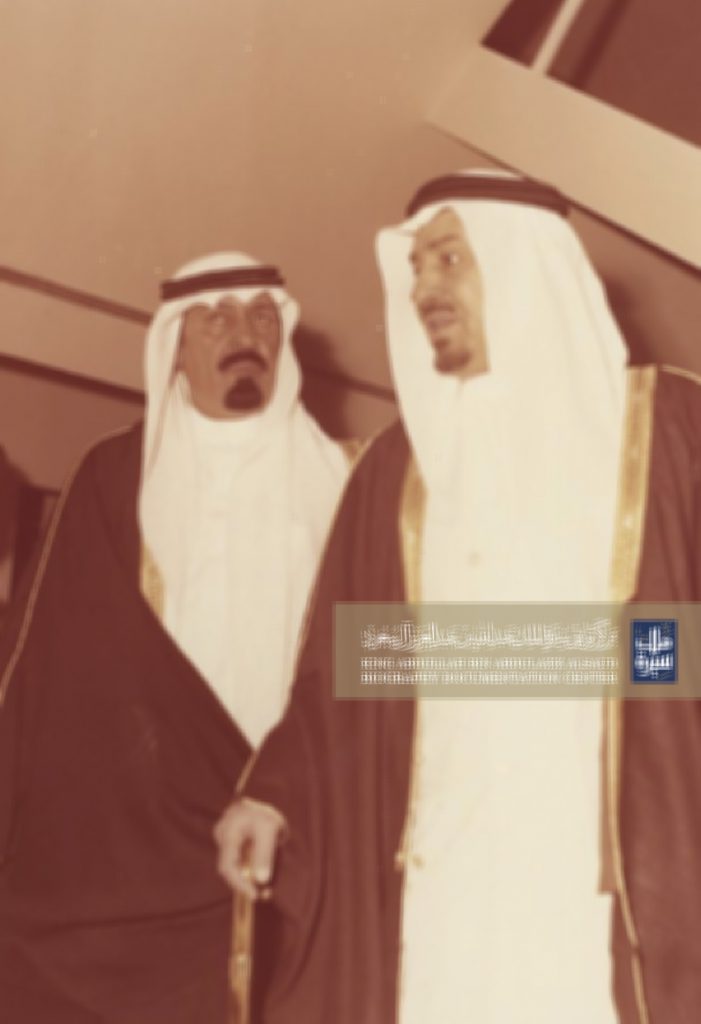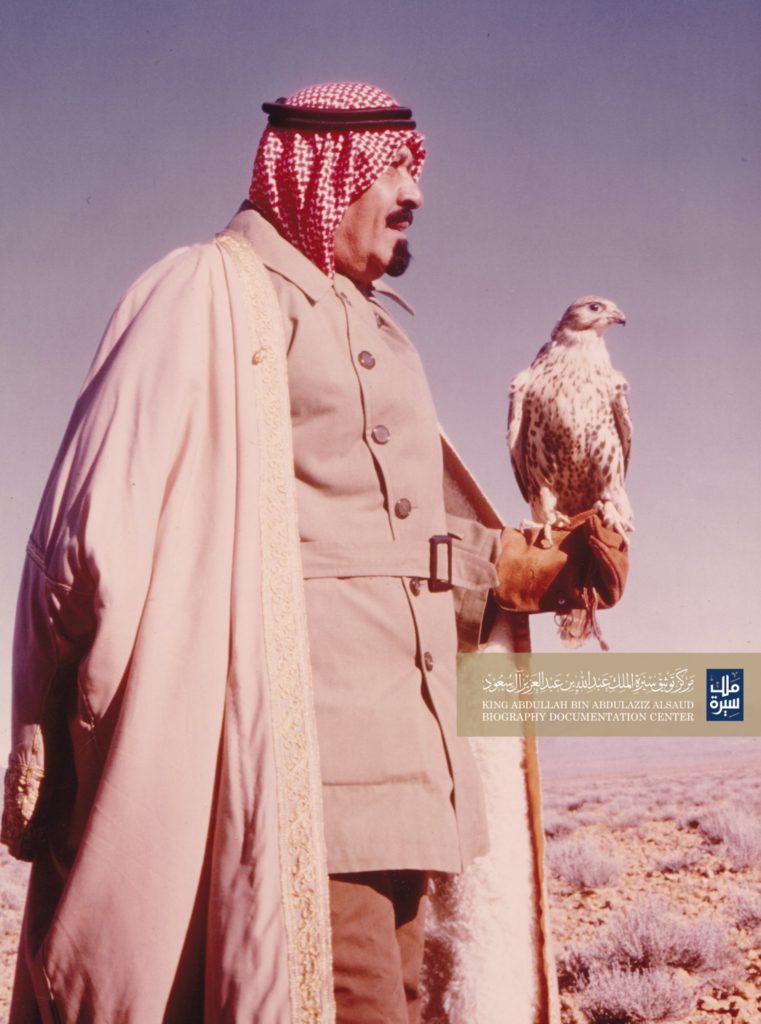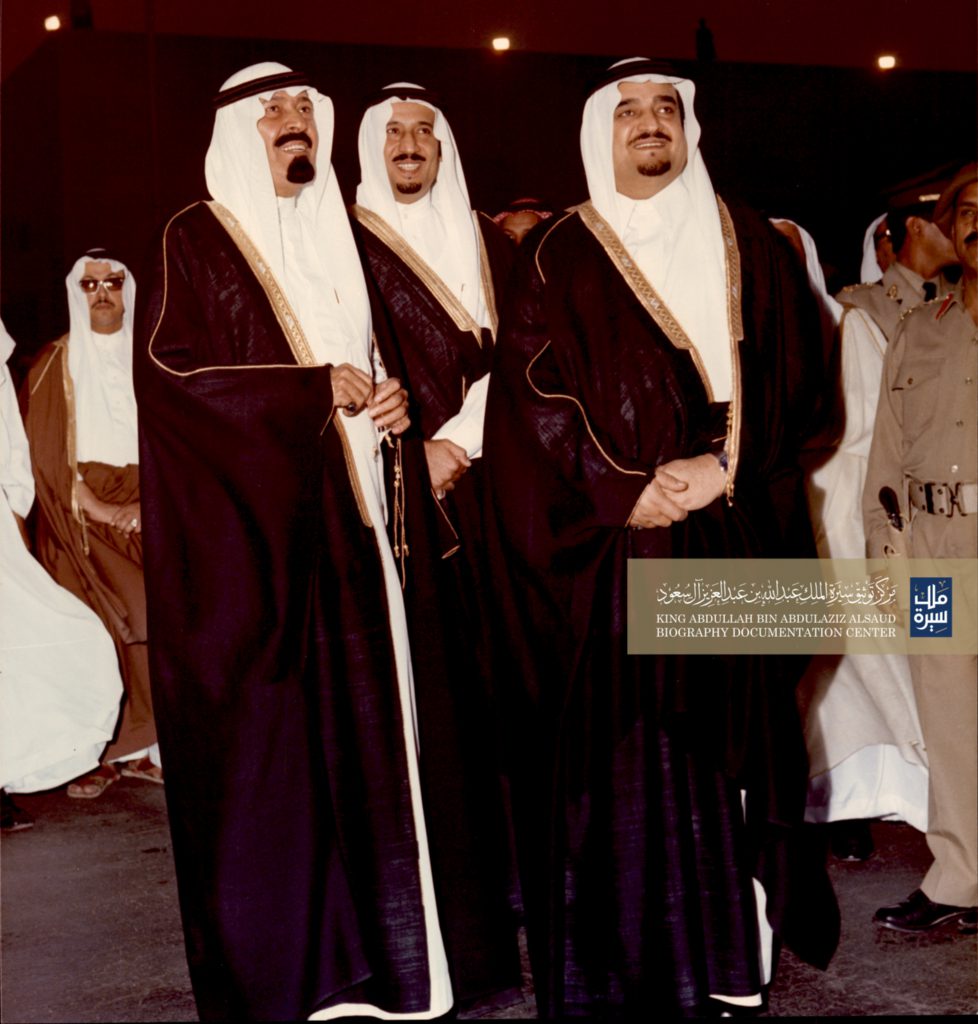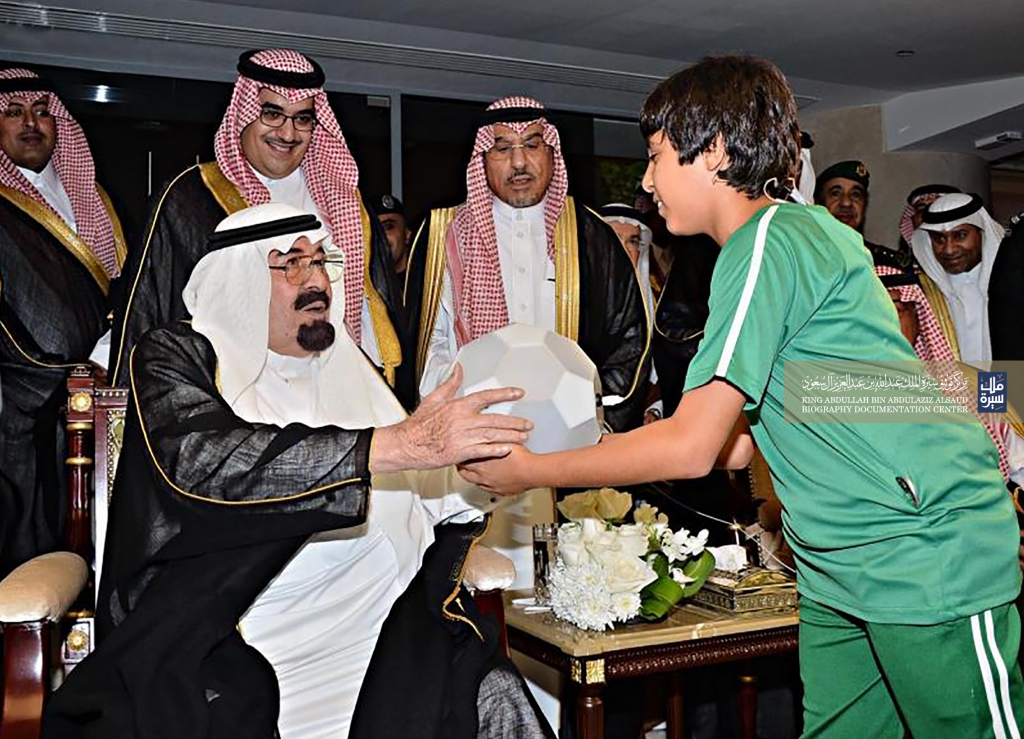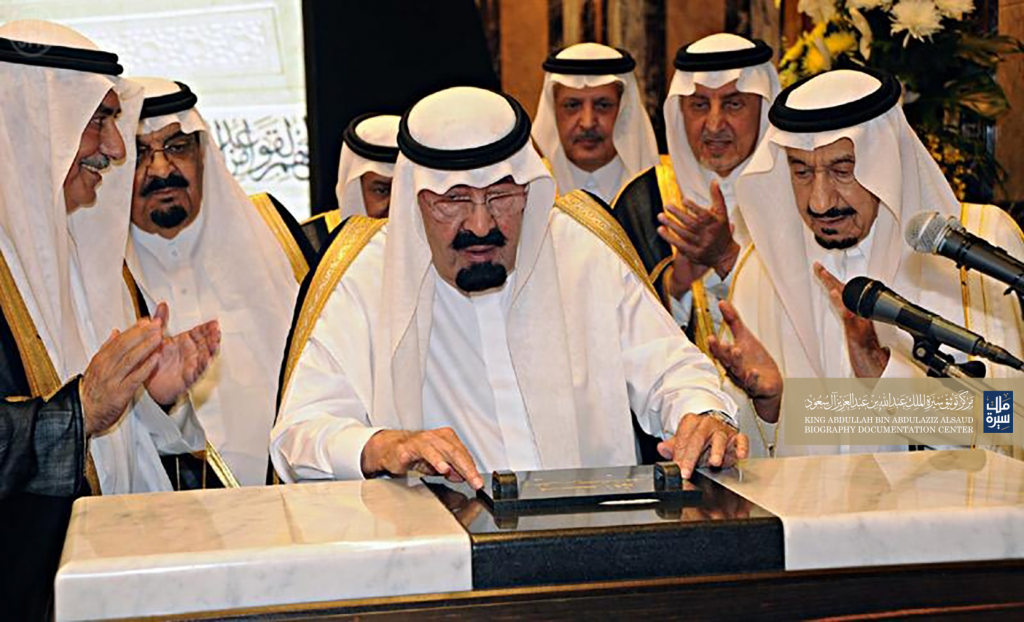Abdullah bin Abdulaziz bin Abdulrahman Al Saud: the sixth King of Saudi Arabia, and the tenth son of King Abdulaziz, he was born and educated in Riyadh, and was appointed head of the National Guard in 1963. He improved National Guard from traditional units to a major military establishment, that preserved homeland security and stability, also he established military schools, colleges and hospitals for National Guard employees.
His brother, King Khalid bin Abdul-Aziz in 1975, appointed him second deputy prime minister (and the king is the head of the cabinet). Then, when his brother King Fahd assume power in 1982, he was appointed crown prince, and after King Fahd's illness on 1995 he ran the country. He proposed an Arab Peace Initiative at the Beirut Summit in 2002, calling for an independent and sovereign Palestinian State with East Jerusalem as its capital.
He was keen on the heritage of the Arabian Peninsula and its culture, and established in 1985 Janadriya Festival for Heritage and Culture, an annual festival organized by the National Guard, and is still held every year.
He was appointed as King of Saudi Arabia after the death of his brother King Fahd in 2005, and took the title of Custodian of the Two Holy Mosques, after King Fahd, may Allah rest his soul.
After his assumption to power, many projects were carried out, notably the expansion of the two Holy Mosques, the expansion of Al-Masa'a, the establishment of the Haramain High Speed Railway, the opening of universities in different regions of the Kingdom, and the expansion of overseas scholarships (through the Custodian of the two Holy Mosques' overseas scholarship program) in 2005. Also, linking Riyadh neighborhoods by rail, and the establishment of the Allegiance Commission in 2006.
He established a number of economic cities, King Abdullah sports city in Jeddah, King Abdullah bin Abdulaziz Center for Petroleum Research and Studies, King Abdullah bin Abdulaziz International Centre for Interreligious and Intercultural Dialogue, the King Abdullah Bin Abdulaziz International Center for the Arabic Language, King Abdulaziz Public Library. Moreover, the Expansion of Health Services, establishing family medical centers, King Saud bin Abdulaziz University for Health Sciences, King Abdullah International Medical Research Center, King Abdullah Medical City in Makkah, and King Abdullah Center for Oncology and Liver Diseases.
He ordered to upgraded the National Guard to a ministry, and introduced women into the Shura Council, and the right to run for municipal councils, and his reign witnessed a major oil boom that reflected on the country's development
He sponsored a number of Arab initiatives aimed at supporting Arab peace, including the Palestinian Reconciliation Agreement in Makkah in 2007 and the Gulf Initiative for the Transfer of Power in Yemen, and played an influential role in maintaining the security and safety of Arab states in Egypt and Bahrain in 2011.
He appointed his brother Prince Sultan as crown prince in 2005, and when he passed away in 2011, appointed his brother Prince Nayef as crown prince, and when Prince Nayef passed away in 2012, appointed his brother Prince Salman as crown prince.
He passed away before dawn on Friday, 3 Rabi Al-Akhir 1436AH - 23/1/2015 in Riyadh and was buried there.
Abdullah bin Abdulaziz bin Abdulrahman Al Saud: the sixth King of Saudi Arabia, and the tenth son of King Abdulaziz, he was born and educated in Riyadh, and was appointed head of the National Guard in 1963. He improved National Guard from traditional units to a major military establishment, that preserved homeland security and stability, also he established military schools, colleges and hospitals for National Guard employees.
His brother, King Khalid bin Abdul-Aziz in 1975, appointed him second deputy prime minister (and the king is the head of the cabinet). Then, when his brother King Fahd assume power in 1982, he was appointed crown prince, and after King Fahd's illness on 1995 he ran the country. He proposed an Arab Peace Initiative at the Beirut Summit in 2002, calling for an independent and sovereign Palestinian State with East Jerusalem as its capital.
He was keen on the heritage of the Arabian Peninsula and its culture, and established in 1985 Janadriya Festival for Heritage and Culture, an annual festival organized by the National Guard, and is still held every year.
He was appointed as King of Saudi Arabia after the death of his brother King Fahd in 2005, and took the title of Custodian of the Two Holy Mosques, after King Fahd, may Allah rest his soul.
After his assumption to power, many projects were carried out, notably the expansion of the two Holy Mosques, the expansion of Al-Masa'a, the establishment of the Haramain High Speed Railway, the opening of universities in different regions of the Kingdom, and the expansion of overseas scholarships (through the Custodian of the two Holy Mosques' overseas scholarship program) in 2005. Also, linking Riyadh neighborhoods by rail, and the establishment of the Allegiance Commission in 2006.
He established a number of economic cities, King Abdullah sports city in Jeddah, King Abdullah bin Abdulaziz Center for Petroleum Research and Studies, King Abdullah bin Abdulaziz International Centre for Interreligious and Intercultural Dialogue, the King Abdullah Bin Abdulaziz International Center for the Arabic Language, King Abdulaziz Public Library. Moreover, the Expansion of Health Services, establishing family medical centers, King Saud bin Abdulaziz University for Health Sciences, King Abdullah International Medical Research Center, King Abdullah Medical City in Makkah, and King Abdullah Center for Oncology and Liver Diseases.
He ordered to upgraded the National Guard to a ministry, and introduced women into the Shura Council, and the right to run for municipal councils, and his reign witnessed a major oil boom that reflected on the country's development
He sponsored a number of Arab initiatives aimed at supporting Arab peace, including the Palestinian Reconciliation Agreement in Makkah in 2007 and the Gulf Initiative for the Transfer of Power in Yemen, and played an influential role in maintaining the security and safety of Arab states in Egypt and Bahrain in 2011.
He appointed his brother Prince Sultan as crown prince in 2005, and when he passed away in 2011, appointed his brother Prince Nayef as crown prince, and when Prince Nayef passed away in 2012, appointed his brother Prince Salman as crown prince.
He passed away before dawn on Friday, 3 Rabi Al-Akhir 1436AH - 23/1/2015 in Riyadh and was buried there.

![logo-01[2305843009217963930]](http://kingabdullah.sa/wp-content/uploads/2021/04/logo-012305843009217963930.png)



